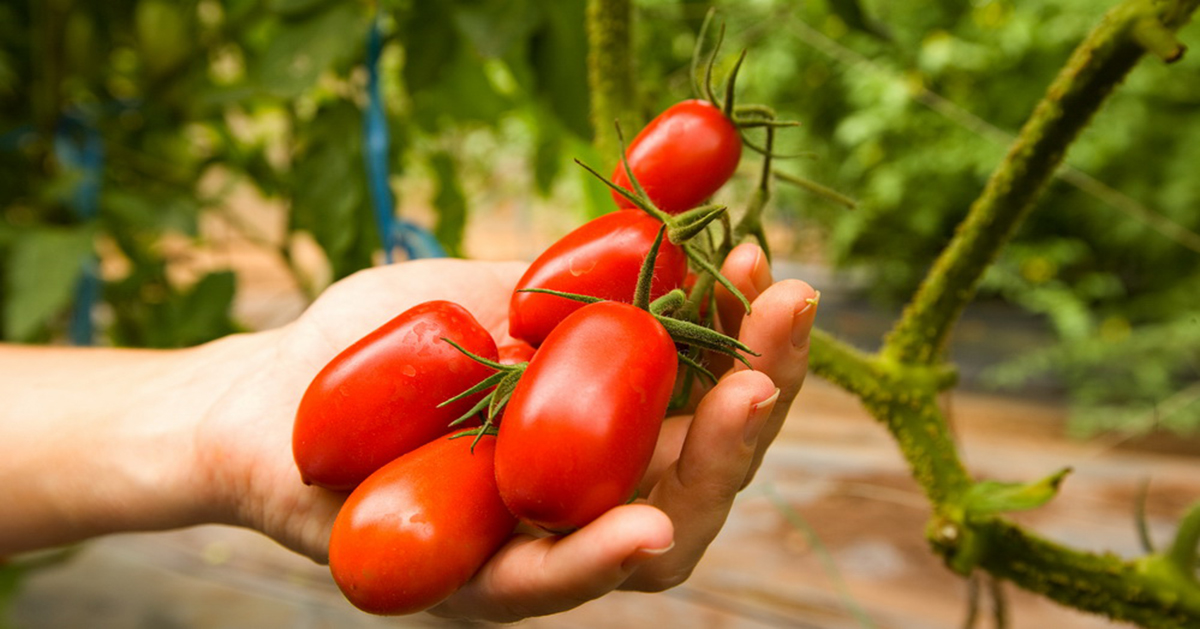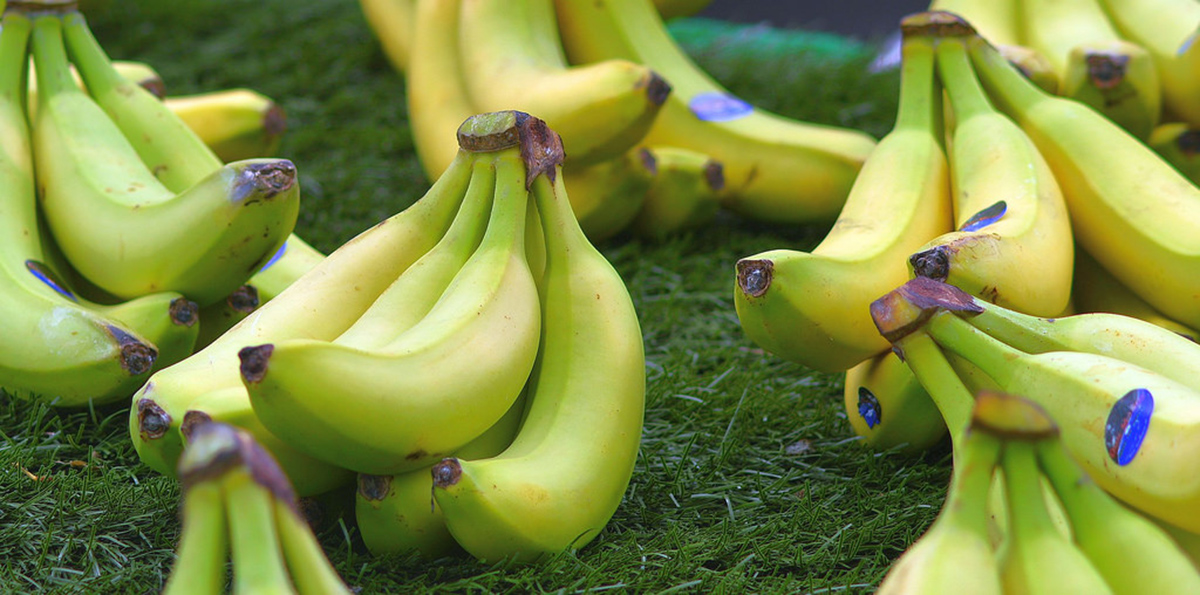Recent decades witnessed a clear trend for increasing consumption of organic food. Driving forces behind this trend is growing health awareness and tendency to adopt healthier lifestyle.

Modern agriculture: chemicals galore
Modern agriculture tends to utilize a variety of chemicals such as fertilizers, growth enhancers, herbicides and insecticides. More chemicals used to keep agricultural products fresh and unspoiled while they are stored and transported. Yet more additives are employed to modify or enhance the taste. And even though most chemicals are rigorously tested and considered safe, the total exposure to multiple unnatural ingredients can become rather substantial. The long-term consequences of such exposure are not sufficiently studied.
The quality of fruits and vegetables is of particular concern for many healthy eaters. Lots of individuals are choosing the diets loaded with fruits and vegetables. The Centers for Disease Control and Prevention currently recommend a diet that is “rich in fruits and vegetables” to help “reduce the risk of cancer and other chronic diseases”. Not only fruits and vegetables help to reduce the risk of chronic diseases, but they provide an abundance of vitamins and nutrients the body needs on a daily basis.
Fruits and vegetables are good for health, but what about their quality?
The proverbial “5-a-day”, five portions of fruits and vegetables as a part of everyday meals, is a cornerstone of any modern healthy diet. Eating five servings of fruits and vegetables every day can help the body better manage the weight, prevent fat gain, and maintain a better blood glucose balance in the system. There is an abundant amount of research demonstrating the importance of consuming plentiful fruits and vegetables for decreasing the health-related mortality risk. Recent data demonstrates that fruit and vegetable consumption is associated with a lower incidence of cancer and cardiovascular diseases. In addition, novel research show that the risks are decreased further when seven or more servings of fruits and vegetables were eaten daily.
But how healthy these products remain after being exposed to multiple chemicals during their growth, production and transportation? In many cases the answer to this question is not straightforward.
Artificial ripening is a common practice
Fruits, particularly of the exotic varieties, that need to be transported for large distances before they reach the consumers, are often picked up before they become ripened. This is done to ensure that they do not get spoiled during transportation. To make sure the fruits look and taste appealing for the customer, they are often subjected to the process of artificial ripening.
Certain chemicals, such as ethylene and acetylene, accelerate the natural processes inside fruits and allow them to ripe in a short period of time. The resulting products sometimes do lack in the taste but at least look nice and fresh.
See Also: US Farmers And Food Companies Are Taking Legal Action Against Dangerous Crop Chemicals
The practice of artificial ripening does cause concern among many people. What the science actually says about the safety of artificially ripened fruits?
Artificial Ripening Might Cause Contamination Of Fruits With Dangerous Chemicals
Both ethylene and acetylene, the compounds used to speed up the ripening, are gases. They completely disappear from the fruits and vegetables by the time they reach the shelves of the shops. There is, however, one particular concern with the treatments of fruits and vegetables by acetylene: the source of the gas. The problem is that the cheapest and most available source of this gas is calcium carbide. This simple inorganic compound easily releases acetylene upon chemical reaction with water. Even though calcium carbide does not represent any danger since the products are not exposed to it directly, it might cause problems if it is not chemically pure. Industrially used calcium carbide is often contaminated with various toxic ingredients, such as phosphorus and arsenic-containing chemicals, that can be released together with acetylene and become absorbed by the treated fruits and vegetables.

A safer approach to accelerate the fruits ripening artificially relies on the use of ethylene. Ethylene can be easily obtained at the spot using ethylene generators. Unlike acetylene, it is usually free of impurities.
The use of calcium carbide is prohibited in many countries but not explicitly banned in the United States. This chemical is also commonly used in many developing countries such as India, often ignoring the official bans. The use of chemically pure calcium carbide does not cause any problems since all health risks are associated with contaminants, but this is something very difficult to control and regulate. As a result, establishing the history of chemical exposure of artificially ripened fruits or vegetable might become a “mission impossible”.
Organic food reduces risk of exposure to various chemicals
Switching to organically grown and treated products would cut such risks altogether. This may be a more costly option, but the overall health benefits appear to be plentiful. Organically grown fruits and vegetables are also free of pesticides, insecticides and most of other chemicals than are commonly encountered in agricultural products these days.
In addition, many people are concerned with the growing production of genetically modified food and particularly with insufficiently studied long-term effects of consuming such products. Organic products are free of most of such problems and complications.
See Also: Pesticides- how dangerous is our nutrition?
Organic food is not necessarily an ideal solution
Nevertheless, a word of caution should be said in regards to the use of organic products. They are commonly praised as a healthy and desirable option, but it is rarely mentioned that due to the lack of various chemical treatments these products are more often affected by natural bacterial, parasitic and fungal infections, which are not always easy to detect. In some cases, organically grown products are simply not as rich of valuable vitamins and nutrients as their non-organic counterparts. This is a consequence of being grown in the conditions of relative lack of nutrients (i.e., lack of fertilizers) and lack of protection from the plant’s natural enemies (insects and various infections). Many people believe that some organic agricultural products are simply not as tasty as the cheaper stuff found in any food shop. Eventually, we need to look for the proper balance of cost and benefits.
- Asif, M (2012) Physico-chemical properties and toxic effect of fruit-ripening agent calcium carbide, Annals of Tropical Medicine and Public Health, vol. 5, issue 3, pp. 150-156
- Oyebode, O, Gordon-Dseagu, V, Walker, A, Mindell, JS (2014) Fruit and vegetable consumption and all-cause mortality: analysis of Health Survey for England Data”, Journal of Epidemiology and Community Health, doi:10.1136/jech-2013-203500
- Per, Hüseyin, Kurtoğlu, Selim, Yağmur, Fatih, Gümüş, Hakan, Kumandaş, Sefer, Poyrazoğlu, M. Hakan (2007), "Calcium carbide poisoning via food in childhood", The Journal of Emergency Medicine 32 (2): 179–80.
- Photo courtesy of Scott Bauer by Wikimedia Commons : en.wikipedia.org/wiki/Tomato#mediaviewer/File:NRCSHI07012_-_Hawaii_(716060)(NRCS_Photo_Gallery).jpg
- Photo courtesy of Micolo J by Flickr : www.flickr.com/photos/robin1966/14539690241

